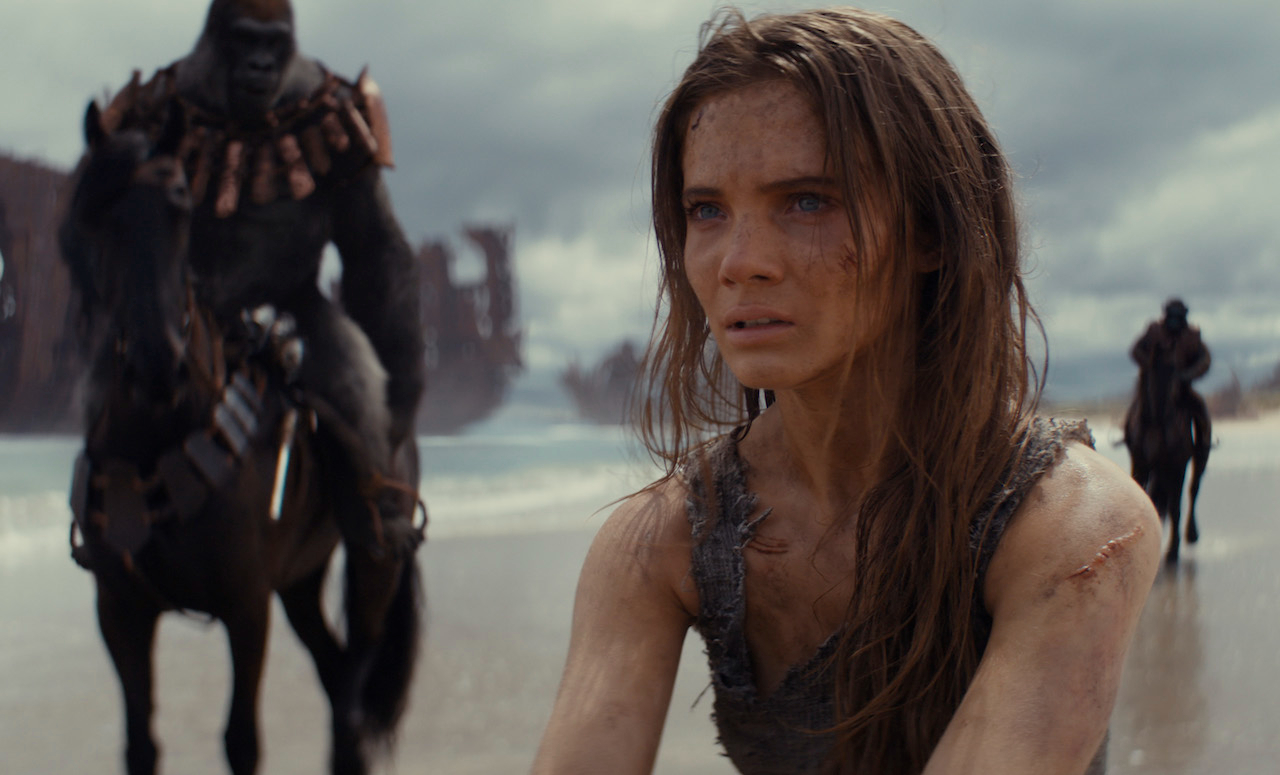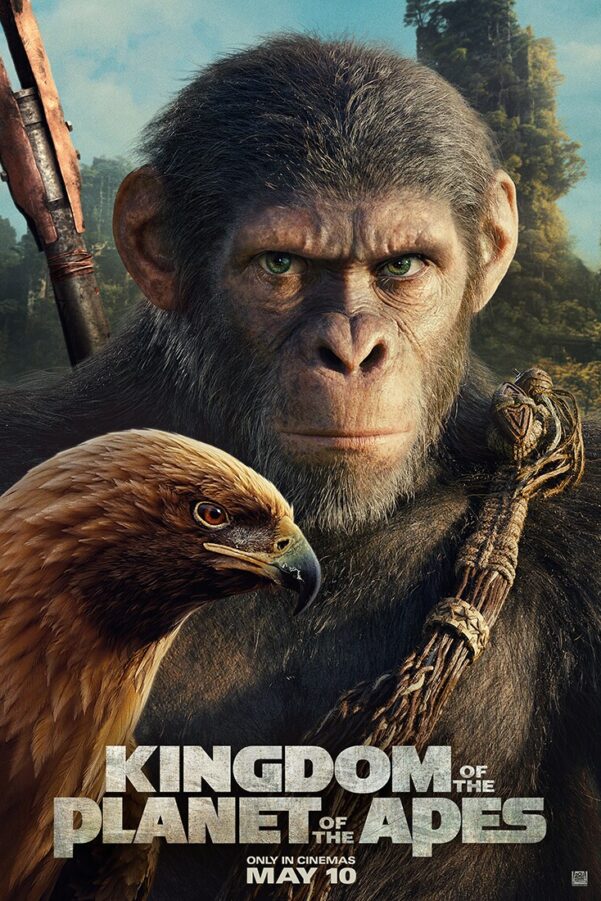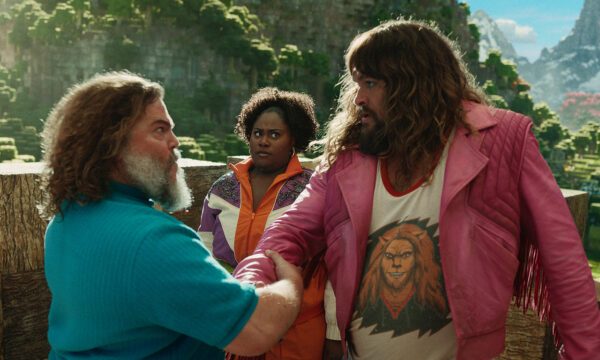Kingdom of the Planet of the Apes

The rare franchise that finds increasing global relevance, The Planet of the Apes saga delivers its most politically potent chapter in ages with this ruminative new entry.
Set 300 years after Caesar’s death, generations of intelligent apes have preserved the utopia of their founder, overseeing an America by upholding the key principle of their patriarch: “Apes stronger together.” We’re dropped into the perspective of Noa (Owen Teague), a young chimp who refreshingly isn’t “the chosen one” or any synonymous trope – he just wants to nourish his community with his hunting skills and empathy towards others.
However, not all apes are like Noa – elsewhere in the Pacific Northwest, the audacious Proximus Caesar (Kevin Durand) is reinforcing the zeitgeisty idea that males think too often about the Roman Empire. He believes that humans deserve extinction but not before they’re sapped of their knowledge so that every hominoid can also learn how to fly, cross the seas and wield new tech. The humans in this film have returned to a primal state after decades of captivity, but an open-minded interaction with one runaway – Mae (Freya Allan) – leads to a shocking head in a potential world where humans and apes could co-exist again.
Naturally, this entails blood, sweat and tears, as Noa is put through the emotional and physical wringer, where action sequences maintain the grit and pathos of Dawn and War and the industry-leading VFX of gorillas capture the exact emotions of the mo-capped ensemble. But what’s most remarkable about this feature is the storytelling depth.
Proximus’s distortion of Caesar’s narrative has remarkable parallels to the way religious values have been warped in today’s world, and the idea of a people seeking self-preservation in disputed territory feels pertinent to ongoing events. Literature is appropriately highlighted as the most powerful tool of expression – it’s books that shape our imagination and experience of the past and, when Noa reads a book left behind by humans that depicted their education, one’s heart breaks thinking about the way we’ve packaged our own cruelty and ignorance to nature.
The political spectrum is represented on polar opposite ends by Proximus on one and irreproachable orangutan Raka (Peter Macon) on the other, but director Wes Ball is most interested in exploring the nuances in between. And Kingdom leaves us with a lot to think about. It’s a long, slow ride, which may be offputting to those attuned to the rhythm of contemporary tentpole cinema. But, overall, it’s a triumph.
Musanna Ahmed
Kingdom of the Planet of the Apes is released nationwide on 9th May 2024.
Watch the trailer for Kingdom of the Planet of the Apes here:





















Facebook
Twitter
Instagram
YouTube
RSS